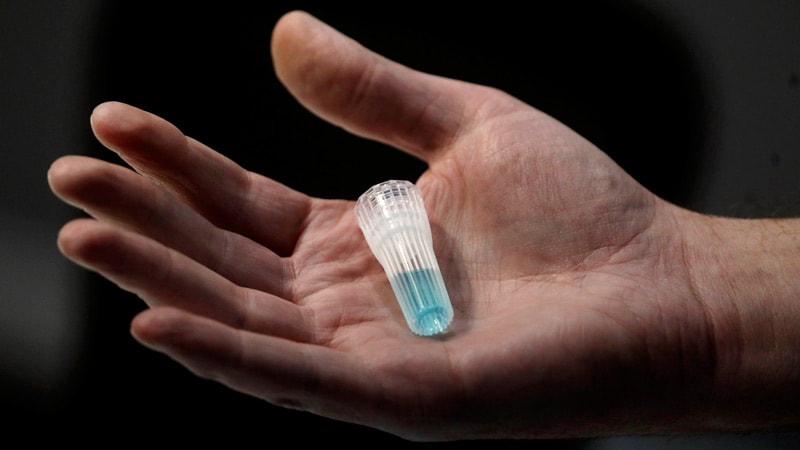Editor’s note: Find the latest COVID-19 news and guidance in Medscape’s Coronavirus Resource Center.
US regulators warned about the potential risk for false negative results with molecular tests for SARS-CoV-2 due to mutations such as a recently detected B.1.1.7 variant of the virus.
The US Food and Drug Administration (FDA) on Friday issued an alert to clinical laboratory staff and clinicians. The agency warned that false negative results can occur with any molecular test for the detection of SARS-CoV-2 if a mutation occurs in the part of the virus’s genome assessed by that test.
The risk that these mutations will affect overall testing accuracy is low, but the FDA is taking additional actions to ensure authorized tests remain accurate, the agency said. These include working with test developers and continuing data analysis to evaluate all currently authorized molecular tests.
Like all viruses, SARS-CoV-2 was expected to mutate over time, as seen with the emergence of the B.1.1.7 variant, the FDA said.
“While these efforts continue, we are working with authorized test developers and reviewing incoming data to ensure that healthcare providers and clinical staff can quickly and accurately diagnose patients infected with SARS-CoV-2, including those with emerging genetic variants,” said FDA Commissioner Stephen Hahn, MD, in a press release.
On a positive note, though, he added that “at this time, we believe the data suggests that the currently authorized COVID-19 vaccines may still be effective against this strain.”
In its Friday letter to healthcare workers, the FDA said that its analysis to date has identified three molecular tests that have received emergency use authorization (EUA) whose performance could be affected by SARS-CoV-2 genetic variants.
Accula SARS-CoV-2 Test:
The FDA’s analysis, including additional information provided by the manufacturer, Mesa Biotech Inc, indicates that this test’s performance may be affected when a SARS-CoV-2 virus patient sample having a genetic variant at position 28881 (GGG to AAC) is tested. “While the impact does not appear to be significant, the FDA is providing this alert to healthcare providers out of an abundance of caution while we continue to gather additional data and work with the manufacturer,” the agency said.
The FDA also advised that healthcare professionals should be aware of updated instructions for use for the Accula SARS-CoV-2 Test. These now include the exact variant location, in silico analysis of the primer binding, and observed performance impact when compared with the perfect match target.
TaqPath COVID-19 Combo Kit and Linea COVID-19 Assay Kit:
The FDA said that the detection pattern that appears with the TaqPath and Linea diagnostic tests when certain genetic variants are present may help with early identification of new variants to reduce further spread of infection.
“The recently identified B.1.1.7 variant has been associated with an increased risk of transmission, therefore early identification of this variant in patients may help reduce further spread of infection,” the agency said.
The agency also advised healthcare professionals to be aware of the pattern of detection associated with certain mutations, including the B.1.1.7 variant, specifically a pattern of 2/3 positive targets showing the S-gene dropout (reduced sensitivity with the S-gene target), when using the TaqPath COVID-19 Combo Kit, and a pattern of 1/2 positive targets showing the S-gene dropout when using the Linea COVID-19 Assay Kit.
“If local or state clinical laboratories have access to quick turnaround whole genome sequencing services, such as those using the EUA-authorized Illumina COVIDSeq Test, these labs should consider further characterizing the specimen with genetic sequencing when this pattern is identified,” the FDA said.
If such services are not readily available, laboratories should consider reaching out to the Centers for Disease Control and Prevention (CDC) at EOCenter177@cdc.gov for additional information, the FDA said.
Other Genetic Variants
The FDA also offered the following recommendations for clinical laboratory staff and clinicians who use molecular tests for the detection of SARS-CoV-2:
-
Be aware that genetic variants of SARS-CoV-2 arise regularly, and false negative test results can occur
-
Be aware that tests that use multiple genetic targets to determine a final result are less likely to be affected by increased prevalence of genetic variants
-
Consider negative results in combination with clinical observations, patient history, and epidemiological information
-
Consider repeat testing with a different test (with different genetic targets) if COVID-19 is still suspected after receiving a negative test result
Multiple SARS-CoV-2 variants are circulating globally, according to the CDC. Several new variants emerged in late 2020, including the B.1.1.7 lineage spotted in the United Kingdom. This variant has since been detected in many countries around the world, including the United States and Canada.
In South Africa, another variant of SARS-CoV-2 (known as 20C/501Y.V2 or B.1.351 lineage) has emerged independently of the B.1.1.7 lineage, the CDC said. This variant shares some mutations with the B.1.1.7 lineage. The CDC said that cases attributed to this variant have been detected outside of South Africa.
For more news, follow Medscape on Facebook, Twitter, Instagram, and YouTube.

